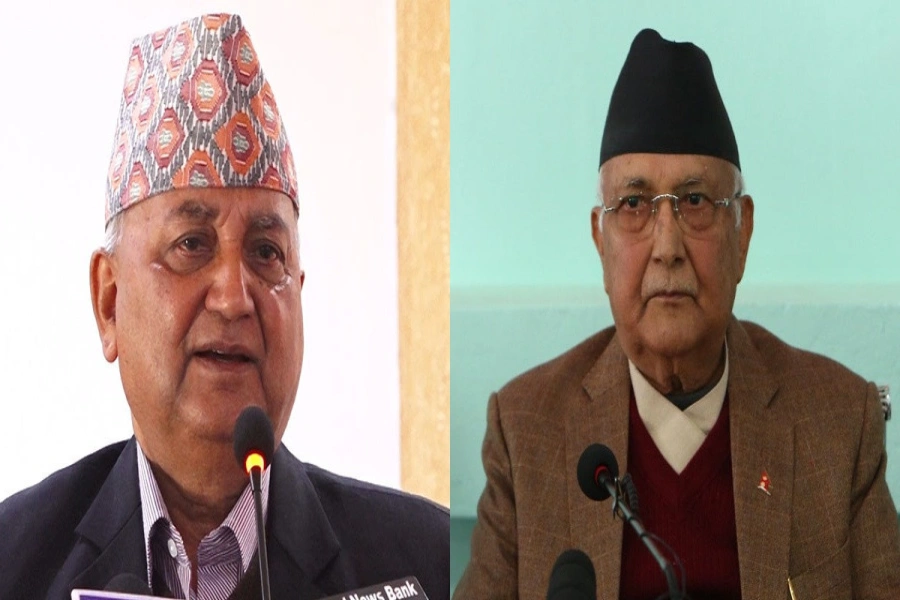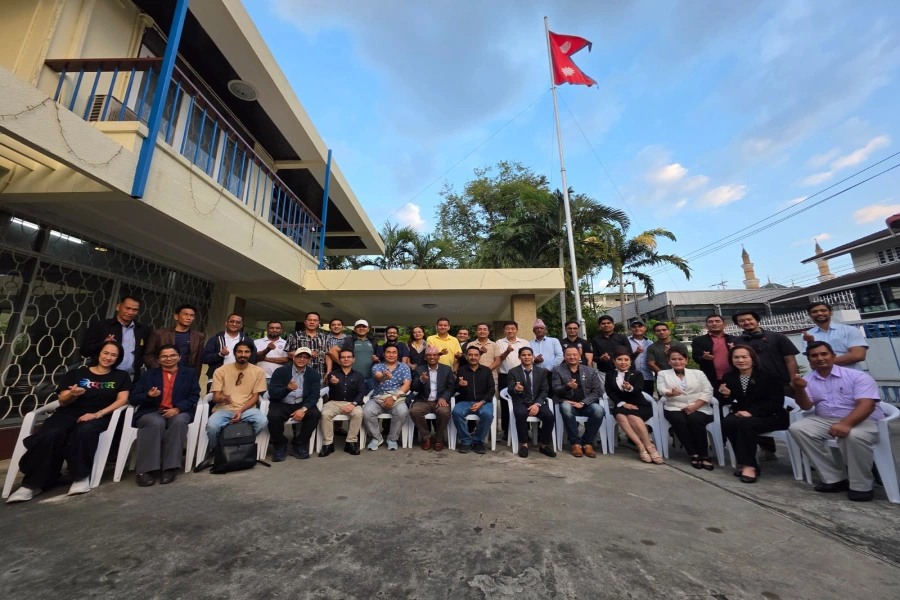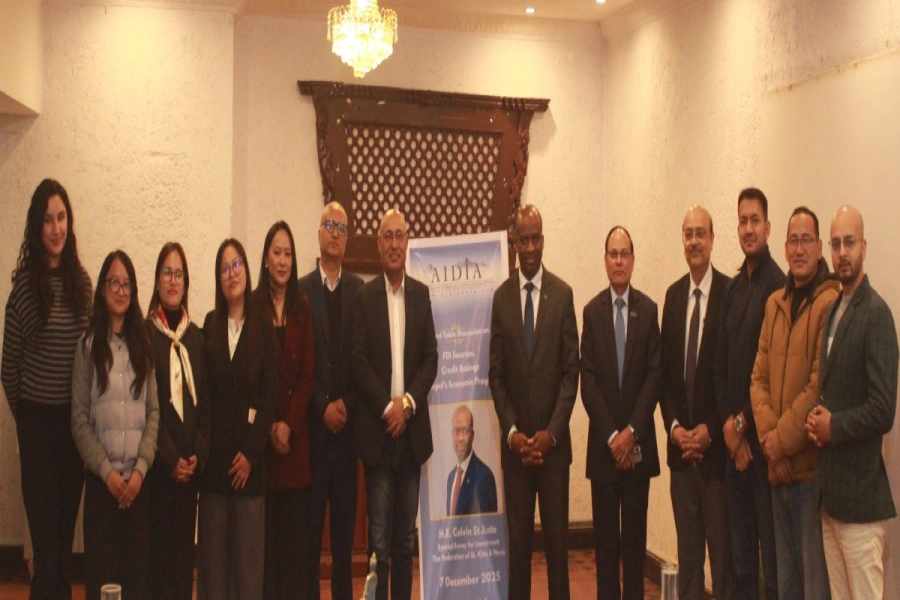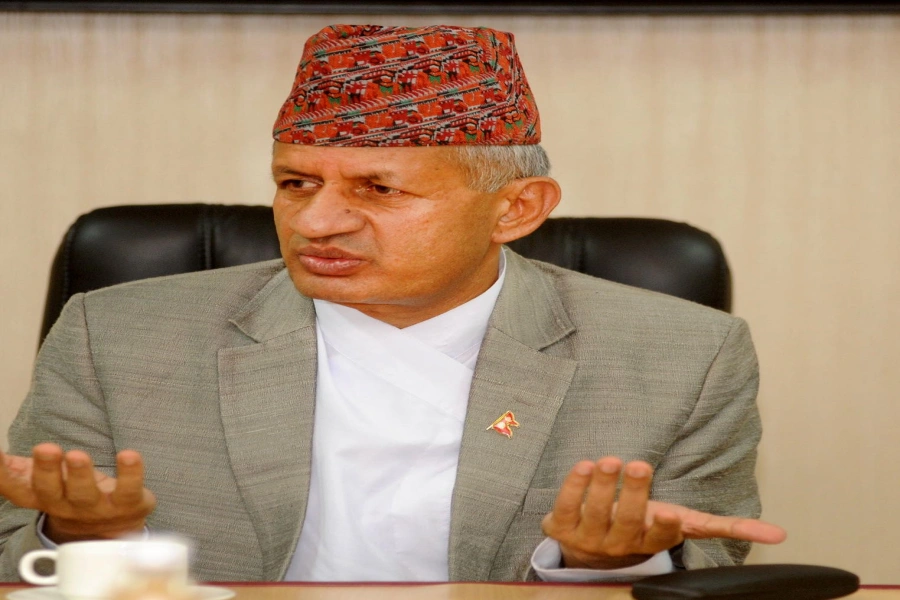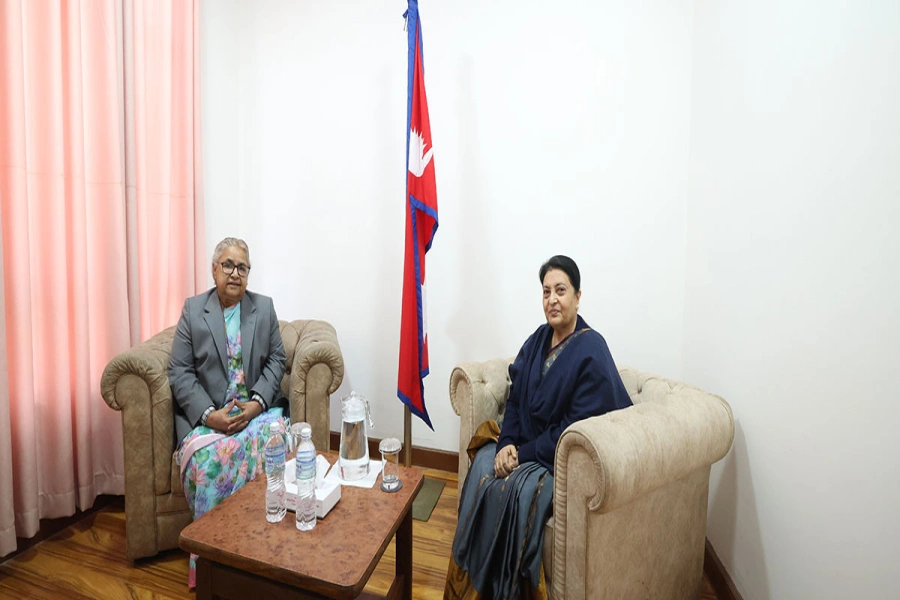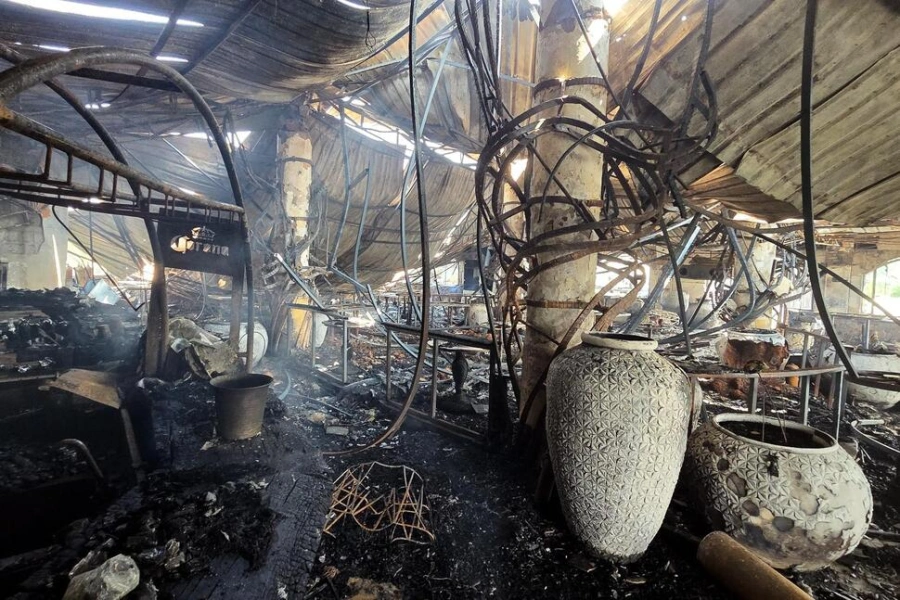KATHMANDU, April 10: An overwhelming majority of Nepalis believe that the country is moving in the right direction despite bitter intra-party disputes among the major political parties and political uncertainty in the country, a national survey has shown.
Jointly conducted by Kathmandu University School of Arts, Interdisciplinary Analyst and Strengthening Local Government among 7,060 respondents randomly selected from 588 wards across the country’s seven provinces, the survey showed that 65.6 percent Nepalis believe that the country is moving in the right direction and they are more optimistic about the country’s direction than they were in 2017 and 2018.
The top four reasons for the optimism are better roads (73.8%), improvements in the supply of electricity (46.0%), increases in access to health services (31.8%), and increases in access to education (30.7%). Nepalis also feel that the most pressing problems facing the country are an increase in corruption, rise in the prices of basic commodities, and a hike in taxes.
When asked to report on the situation in their areas, 84.3% of the respondents said that the social conditions where they live and work are improving, 78.5% others said that their local economic situation is improving, and 55.0% said that their local political conditions are improving. The main reasons for Nepalis to believe that their local situation is improving include better roads, better social aspects, access to electricity, and access to education.
The findings of the nationwide survey entitled A Survey of the Nepali People in 2020 released earlier this week showed more than two-thirds of the total population in the country is unaware about the changes brought about by the Constitution of Nepal, 2015.
Desperate search for missing girls as nearly 80 dead in Texas f...

The findings showed that 68.4% of Nepalis are still unaware about the changes brought about by the Constitution of Nepal 2015. Of those who are aware, more than half (63.9%) cite federalism, its features (seven provinces, rural and urban municipalities), while approximately 47.3% cite the proportional representation of women, Dalits, Janajatis, and Madhesis as some of the key features of the Constitution.
The nationwide survey has shown that the political parties in Nepal are the least trustworthy institutions for the Nepali people.
According to the survey, some 43.8 percent respondents said that they do not trust the political parties. In contrast, local government bodies are steadily seen gaining trust of the Nepali people. As much as 84.6 percent of the respondents said that they trust ward chairpersons/members, while 91.8 percent still trust media organisations, followed by 90.7 p[ercent who perceive the community-based organisations as the most trustworthy institutions in the country.
The level of faith and confidence the Nepalis place in their municipal/rural and ward chairpersons has increased since 2017, in addition to their trust in the local political leaders, courts, and judicial committees.
Over the years, awareness about the services provided by all three types of government, according to the survey, has increased significantly. Nearly two-thirds (65.8%) of the respondents said that health check-ups at government health posts/hospitals were the most frequently received local government services in the past year.
Nepalis rate education-related services provided by their local governments as above average. More than two-thirds of Nepali parents who send their children to public schools (83.6%) and private school (77.2%) regard the local government as the responsible government entity for maintaining the quality of education in both educational settings.
The survey also shows that a vast majority of Nepalis (85.0%) feel that there are no security problems or threats to their safety in their localities, while about one-sixth (14.6%) state that there are some security problems or threats. Among the surveyed Nepalis, 17.8 percent perceive themselves and their families as being ‘very safe,’ 78.8 percent view themselves as being ‘reasonably safe,’ while 3.4 percent feel they are ‘somewhat unsafe.’
For dispute resolution, Nepalis consistently prefer more formal mechanisms, such as ward chairpersons/members, the police, mayors of municipalities, and chairpersons of rural municipalities. The fact that more and more people are willing to choose elected representatives over other mechanisms for dispute resolution reflects the people’s growing trust in the local governments. While ward chairpersons/members are the respondents’ first preference for resolving land disputes (32%) and debt disputes (29.1%), they prefer the police to resolve disputes over domestic violence (24.7%) and crimes (49.6%).
Among other things, the survey showed that an increasing number of people have been brought under the tax net in recent years. More than four-fifths (81.4%) of Nepalis paid one or more forms of taxes in the past year. Land tax, vehicle tax, property tax, and entertainment tax are the most commonly paid taxes.
While most respondents say they do not know about the current tax rates/types, most of those who paid property and land taxes reported an increase in the taxes compared to the last year. Most Nepalis (98.0%) do not have a clear understanding of taxes or accurate information on the collection and utilization of taxes by the different tiers of government. A small proportion (4.3%) of Nepalis admitted to paying bribes to receive services in 2020. Nepalis mostly pay bribes to obtain official documents, such as acquiring a license or for land-related services.
Most respondents reported that the local governments have become more responsive than the provincial and federal governments. While 58.9 percent of the respondents appreciated the responsive role of local governments, 44.2 percent said the same for the provincial governments, and 43.6 percent for the federal government. Most Nepalis have heard about allowances for senior citizens, single women, and disabled persons. The most commonly received social security benefits are those related to senior citizens, widows, and single mothers.




